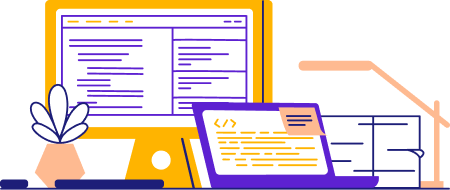In certain lines of work, sending a letter of resignation to your boss may not be very convenient. In such situations, you’ll probably end up writing a resignation email instead.
But how can you be sure if that’s the acceptable thing to do? And are resignation emails any different from resignation letters?
Don’t worry—you don’t need to delay quitting your job because you don’t know how to say you’re leaving. We have all the answers right here, so there’s no need to puzzle over this conundrum any longer! Here’s everything you need to know about writing a resignation email.
Understanding Resignation Emails

When you think of resignations, you probably think of a letter rather than an email. In fact, your instinct might say that an email might be a bad idea because it’s not formal enough.
You’re not wrong for thinking that, but as companies globalize, digital forms of communication become a necessity. Let’s look into exactly what a resignation email is and when they’re an appropriate option.

What is a resignation email?
A resignation email is exactly what it sounds like—an email that states your intention to resign and specifies your last day of work. They’re often sent to both your manager and the HR department, though it’s also common practice to have a one-on-one with your manager to let them know beforehand.

The legitimacy of email resignations
Though it might sound a little unconventional, resignation emails are a legitimate way to resign in a lot of situations. The deciding factor is usually geographical. Is your manager’s office in the same building you work in? Do you even work in a building at all? Are you a remote worker, or is your manager a remote worker?
Resignation emails are acceptable in all of these situations because it’s not reasonable or possible to deliver a physical letter to a desk. If you are in frequent contact with your manager and you feel a little uncomfortable just sending an email, the best strategy is to arrange a meeting beforehand. Of course, a Zoom call is totally acceptable as well.

Resignation emails vs. letters
In terms of content, resignation emails and resignation letters are exactly the same. You can even write up a resignation letter as a Word document, turn it into a PDF, and attach it to an email. Whichever method you choose, the words themselves will stay the same.
However, if you do work in the same office as your boss, it’s a good idea to print out your resignation letter and hand it to them in person. That way, you can keep things personable and avoid offending anyone—a person might wonder why you chose an email if you’re sitting only a few meters away!
On the other hand, a resignation email or an email with a digital resignation letter attached won’t offend anyone if your manager isn’t in the same building as you. Even if, for example, you’re an on-site worker and your manager works in an office somewhere else in the city, this is enough geographical distance to justify an email. No one needs to travel to hand over a piece of paper.
Crafting the Perfect Resignation Email

The two biggest things you want to get right with a resignation email are clarity and tone. The reader shouldn’t be left with any confusion as to when you’re leaving and what kind of notice you’re giving.
They also shouldn’t come away with any negative feelings—the resignation email is not the place to complain about the job or badmouth any of your colleagues. Instead, it’s important to express gratitude for the opportunities and experiences you’ve enjoyed during your tenure. Let’s dive deeper into how you can achieve this.

Preparation
Before you start writing anything, you need to think about your reason for leaving. You don’t have to tell your company the reason, but it will determine the kind of notice you need to give.
For instance, if you received a better offer and are leaving for a new job, you’ll need to give the standard amount of notice that’s stated in your contract. This is often two weeks for most jobs and possibly a month or two for skilled professional jobs.
If the situation is a little more urgent and you have personal reasons for leaving, you might give short notice or even immediate notice for an emergency. Make sure you read through your employment contract to be certain that you give the right amount of notice for your situation.

Writing the email
Luckily, writing a resignation email isn’t really that hard. As long as you include all the necessary parts, you don’t need to have any particular flair for writing to achieve the perfect result. The same can’t be said for cover letters—even confident writers struggle with those, where there’s no shame in relying on a cover letter generator to lighten the workload!
One thing you can’t forget to do, however, is proofread your work. Making mistakes is unavoidable but leaving them uncorrected will make your email seem rushed. You can also run it through a checker like Grammarly—though make sure to read through each suggestion before accepting it.

Email subject line
With a delicate subject like a resignation, it can seem a little blunt to include the email’s purpose in the subject line. However, there really isn’t any other choice—if you hide what your email is about, it will only come as an unpleasant surprise when they read it.
It could also cause them to put it aside for later because it doesn’t seem important, which is the last thing you want. Clear and concise is the way forward, like these examples.
- “Resignation – Your name”
- “Notice of resignation – Your name”
- “Formal resignation notice”
If you work in a large company, it could also be useful to include the department or team you work in.

Recipient address
The first person you need to address your resignation email to is your line manager. However, in an ideal situation, you will have already had an in-person meeting or video conference call with your manager about your resignation, so when you send the formal written notice, you can go ahead and CC the appropriate HR employee as well.

Purpose of your email
Just as with the subject line, it’s best to get straight to the point when you begin your email. State your intention to resign, and then give the date of your final day. Beating around the bush won’t do you or the recipients any favors, so just stick to our advice and get the job done! Here are some examples.
- “I am writing to inform you that I am resigning as Staff Engineer at Meta. I intend for my final day at work to be Tuesday, 8th July, 20XX.”
- “Please accept this message as my formal notice of resignation from Wells Fargo. My final day will be August 25th, two weeks from today.”

Further details (optional)
If you want to, you can briefly explain your reasons for leaving. This could be a new job, a career change, moving to a different area, taking a break from full-time work to raise a family and many other things. You might even have lined up resume examples or be planning to power up a resume builder to help land a new position after quitting, but your current boss doesn’t need to know that.
Not every reason is positive, however. It could be very personal and you might be feeling a lot of stress, but it’s important to maintain your professionalism. If you choose to share your reasons, keep it brief and factual. Please remember, however, that you’re never obligated to give your reasons—if you feel pressured to do so, it might be best to go straight to HR.

Expression of appreciation
Expressing gratitude is the best way to keep your resignation email positive and stay on good terms with your manager. In most cases, it should be relatively easy to think of a few things you’re grateful for but if you are in a less ideal situation, it’s still important to be polite and give a general expression of gratitude.
This way, you’ll be able to ask for a letter of recommendation and keep opportunities for further collaboration open in the future.

Conclusion of the email
To end your resignation email on an even more positive note, it’s time to pull out your secret weapon—offering assistance. Managers are usually exceedingly grateful for helpful employees who are willing to assist during the transition period or answer a few questions over email after they’ve left.
Then, it’s finally time to say a final thank you and end the email with a professional sign-off. “Sincerely,” or “Kind regards” should do just fine.
What to Avoid in a Resignation Email

There are a few things you need to avoid if you want to write a positive, professional resignation letter that will help you secure a recommendation for your next role. Firstly, if your reason for leaving is sensitive, it’s best to avoid giving details. This could include referencing an HR issue that your manager hasn’t been made aware of.
To maintain professionalism, you also need to avoid being too blunt. This is pretty obvious, and you’ve probably been practicing this technique through most of your tenure anyway—so don’t let all that effort go to waste now! Be clear and concise, but always keep things polite and professional.
The last thing to avoid is including complaints about the company or your colleagues. You might want to give people a piece of your mind, and you may deserve to, but the hard truth is that it won’t benefit you or your career going forward. You may, however, get a chance to share some constructive criticism before you leave if your company conducts exit interviews.
Resignation Email Examples

Just like you look at resume templates when crafting a resume, looking at resignation examples is the best way to learn. Our six resignation email examples cover six different resignation types.
Two Weeks Notice Resignation Email
Subject: Formal resignation – Chris Turner
Dear Mrs. Carter,
I am writing to inform you that I will be resigning as assistant manager at Walmart Supercenter. My final day will be July 21, meaning two weeks from today.
I would like to express my utmost gratitude for the opportunities I’ve enjoyed at Walmart and the support I received during my journey from floor worker to assistant manager.
During my last two weeks, I hope to help my replacement transition into the role of assistant manager. After I leave, please also feel free to contact me at [email protected]. Thank you for your help during my tenure as assistant manager.
Sincerely,
Chris Turner
Immediate Resignation Email
Subject: Notice of immediate resignation – Karina Kuznetsova
Dear Mr. Jackson,
I regret to inform you that I must resign with immediate effect from my position as head data analyst at Microsoft. My last day will be today, July 27, 20XX.
I apologize for this sudden announcement. A family emergency requires my immediate and possibly long-term attention. I would like you to know how appreciative I am for the support and guidance I’ve received throughout my time here.
Once my situation has settled, I would be happy to help hand over my current project over email and Zoom. Thank you for your understanding.
Sincerely,
Karina Kuznetsova
Resignation Email with an Attached Formal Letter
Subject: Notice of resignation – Steven Bentley
Dear Ms. Malkiewicz,
After careful consideration, I have decided to resign from my role as product manager at Nike. Please find my formal letter of resignation attached.
I would like to sincerely thank you for the opportunities and guidance I’ve received during my four years with Nike. Working with you has been a pleasure.
Sincerely,
Steven Bentley
Resignation Email for Personal Reasons
Subject: Notice of resignation – Michelle Nakamura
Dear Mr. Holland,
I am writing to inform you that I must resign from my position as a software engineer at Tesla due to personal reasons that require my full attention. I am, however, able to give the full three weeks’ notice stipulated in my contract. My final day will therefore be September 10, 20XX.
Please allow me to express my gratitude for the opportunities I’ve enjoyed and the experience I’ve gained while working at Tesla. I intend to make sure all of my work is wrapped up and handed over smoothly before my final day.
If anyone has questions after I leave, please don’t hesitate to contact me at [email protected]. Thank you for your understanding.
Sincerely,
Michelle Nakamura
Resignation Email for New Job Opportunities
Subject: Notice of resignation – Charles Peterson
Dear Mr. Ghulam,
Please accept my resignation from my role as HR consultant at Johnson & Johnson. Following the standard two-week notice period, my last day will be May 14, 20XX.
I will be moving onto a new position with a new company, but I would like to take this opportunity to express my gratitude for the support I’ve received during my tenure.
I will work with my team over the next two weeks to wrap up my projects and hand over any ongoing work. You can also feel free to contact me at [email protected] after I leave.
Thank you again for the opportunity to work here.
Sincerely,
Charles Peterson
Retirement Resignation Email
Subject: Notice of retirement -Jesus Lopez
Dear Ms. Davis,
I am writing to inform you that I will be retiring from my position as a storybook artist at The Walt Disney Company. I plan to retire in three months, with my last day being March 1, 20XX.
I have thoroughly enjoyed and benefited from my 20 years with Disney, and I would like to relay my gratitude to everyone I’ve worked with during my time here, especially you. Working with you has been a pleasure.
Over my remaining months, I will wrap up my current projects, and happily assist with any transitions that may occur.
Thank you again for a memorable 20 years.
Sincerely,
Jesus Lopez
Resignation Email FAQs

It depends on the situation. If you work in a remote position or your boss works remotely, it’s totally acceptable to send a resignation via email. The trick is to still have a meeting beforehand to talk things over face-to-face—though it will technically be over Zoom or another video conference software.
Subject lines should always be straight to the point—there’s no benefit in hiding the fact that it’s a resignation email! Formal and concise is the way to go, including a phrase like “resignation notice” or “formal resignation” plus your name and any other identifiers your company uses.
Don’t worry, bosses refusing to accept resignations is really more of a movie thing than a reality thing. You always have the right to quit your job, no matter what your boss says. The only thing to think about is the terms of your employment contract. If you break any of these, you may lose out on some perks like outstanding holiday pay.
A resignation email is typically pretty short so it may seem repetitive, but the best way to end it is with another thank you and a short expression of gratitude. You can also include your contact information if you wish to lend a hand with any outstanding issues once you’ve left. As a sign-off, the usual “kind regards” or “sincerely” will work just fine.
The most important tip is the most obvious: keep up the good work you’ve been doing! If you let your work ethic slip or deliver lower quality work during your notice period, it could damage your reputation with your colleagues. You might be leaving them for now, but you never know when your paths might cross again! Try to be helpful and patient as you hand over work or assist in training a replacement.





